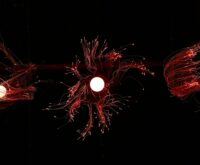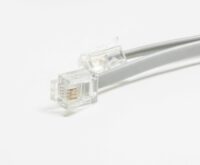The Unseen Benefits of a Liberal Arts Education
In today’s increasingly specialized world, the value of a broad education is often overlooked. Many students feel pressured to pursue purely vocational degrees, focusing narrowly on a specific career path. But what if the key to a fulfilling and successful future lies in a different approach? What if the so-called “soft skills” cultivated by a liberal arts education are actually the secret weapons in navigating the complexities of the 21st century? Let’s delve into the unseen benefits of a liberal arts education and uncover why it might be the best investment you can make in yourself.

Beyond the Textbook: Cultivating Essential Skills
A liberal arts education isn’t about memorizing facts and figures; it’s about developing a way of thinking. It’s about learning to analyze information critically, communicate effectively, and approach problems creatively. These are the skills that employers crave, the skills that transcend specific industries and remain valuable throughout a lifetime.
Critical Thinking: The Art of Discernment
In the age of information overload, the ability to think critically is paramount. A liberal arts education hones this skill by exposing students to diverse perspectives and challenging them to evaluate arguments, identify biases, and form their own informed opinions. This intellectual rigor translates directly into the workplace, empowering graduates to make sound judgments and solve complex problems.
Communication: The Bridge to Connection
Whether you’re writing a compelling proposal, delivering a captivating presentation, or simply having a productive conversation, effective communication is essential for success. Liberal arts programs emphasize writing, speaking, and active listening, equipping students with the tools to articulate their thoughts clearly and connect with others meaningfully.
Creativity: The Spark of Innovation
Innovation is the lifeblood of progress, and creativity is its driving force. A liberal arts education nurtures creativity by encouraging exploration, experimentation, and out-of-the-box thinking. Through exposure to art, literature, music, and philosophy, students develop a broader perspective and a greater capacity for imaginative problem-solving.
Adaptability: Thriving in a Changing World
The job market is constantly evolving, and the careers of the future may not even exist yet. A liberal arts education equips you with the adaptability to navigate this uncertainty. By fostering a love of learning and a willingness to embrace new challenges, it prepares you to evolve with the times and thrive in any environment.
The Power of Interdisciplinary Thinking
One of the unique strengths of a liberal arts education is its interdisciplinary nature. By exploring connections between seemingly disparate fields, students develop a holistic understanding of the world and gain a broader perspective on complex issues. This ability to see the bigger picture is invaluable in today’s interconnected world.
Lifelong Learning: A Journey of Discovery
A liberal arts education instills a love of learning that extends far beyond the classroom. It cultivates intellectual curiosity, encourages lifelong exploration, and empowers individuals to continually grow and adapt throughout their lives. This commitment to lifelong learning is essential for staying relevant in a rapidly changing world.
Real-World Applications: From the Classroom to the Career
The benefits of a liberal arts education extend far beyond the theoretical. They translate into tangible advantages in the real world, empowering graduates to pursue a wide range of careers and make a meaningful impact on society.
Leadership and Collaboration
Liberal arts graduates often excel in leadership roles because of their strong communication skills, critical thinking abilities, and collaborative spirit. They are adept at building consensus, motivating teams, and navigating complex interpersonal dynamics.
Problem-Solving and Innovation
The ability to analyze problems from multiple perspectives and devise creative solutions is a hallmark of a liberal arts education. This makes graduates highly sought after in fields that require innovation, such as technology, entrepreneurship, and research.
Ethical Decision-Making
A liberal arts education emphasizes ethical reasoning and social responsibility, preparing graduates to make informed decisions that consider the broader implications of their actions. This ethical compass is essential for navigating the complexities of the modern world and contributing to a more just and equitable society.
Examples of Liberal Arts Careers
- Marketing and Communications: Crafting compelling narratives, understanding audience needs, and communicating effectively across various platforms.
- Project Management: Organizing teams, managing resources, and solving problems creatively to achieve project goals.
- Education and Research: Inspiring future generations, conducting groundbreaking research, and contributing to the advancement of knowledge.
- Law and Public Policy: Analyzing complex legal issues, advocating for social justice, and shaping public policy.
- Entrepreneurship and Business: Developing innovative business ideas, adapting to changing market conditions, and leading dynamic teams.
Investing in Your Future: The Value of a Holistic Education
In a world that often prioritizes specialization, the liberal arts offer a powerful counterpoint. They provide a foundation for lifelong learning, adaptability, and success in a rapidly changing world. By investing in a liberal arts education, you are not just choosing a degree; you are investing in yourself, your future, and your ability to make a meaningful contribution to the world.



 Why a Real Student Vacation is Crucial for Success
Why a Real Student Vacation is Crucial for Success  Your University Library: More Than Just Books
Your University Library: More Than Just Books  Protecting Your Intellectual Property: A Student’s Guide
Protecting Your Intellectual Property: A Student’s Guide  Psychology of Motivation: What Drives Students to Succeed
Psychology of Motivation: What Drives Students to Succeed  Fact-Check & Verify Information in the AI Era: Your Guide
Fact-Check & Verify Information in the AI Era: Your Guide  VR and AR in Studies: The Ultimate Student Guide
VR and AR in Studies: The Ultimate Student Guide  Backtest Crypto Trading Strategies: A Complete Guide
Backtest Crypto Trading Strategies: A Complete Guide  NFT Standards: A Cross-Chain Guide for Creators & Collectors
NFT Standards: A Cross-Chain Guide for Creators & Collectors  Decentralized Storage: IPFS & Arweave Explained Simply
Decentralized Storage: IPFS & Arweave Explained Simply  How to Calculate Cryptocurrency Taxes: A Simple Guide
How to Calculate Cryptocurrency Taxes: A Simple Guide  Your Guide to Music NFTs & Top Platforms for 2024
Your Guide to Music NFTs & Top Platforms for 2024  TradingView for Crypto: The Ultimate Trader’s Guide
TradingView for Crypto: The Ultimate Trader’s Guide